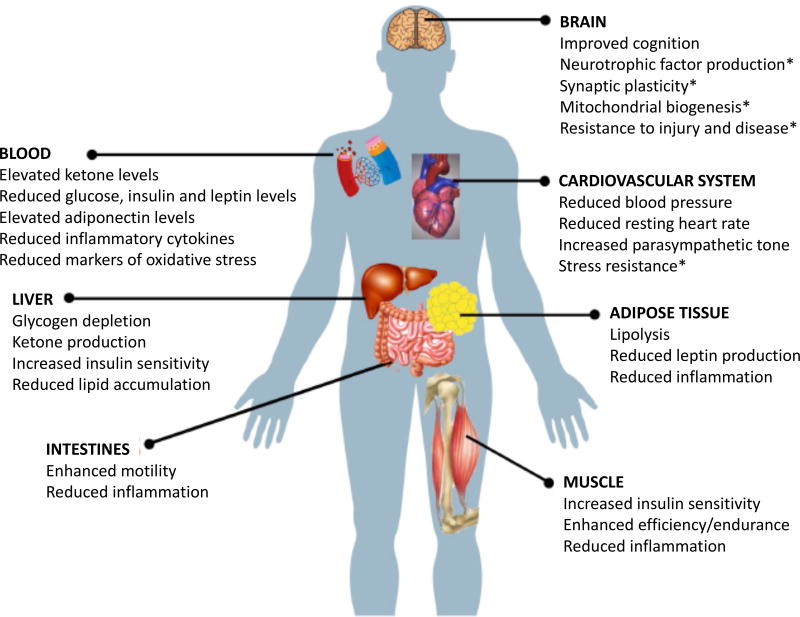Figure 3.
Examples of functional effects and major cellular and molecular responses of various organ systems to IF. In humans and rodents, IF results in decreased levels of circulating insulin and leptin, elevated ketone levels, and reduced levels of pro-inflammatory cytokines and markers of oxidative stress. Liver cells respond to fasting by generating ketones and by increasing insulin sensitivity and decreasing lipid accumulation. Markers of inflammation in the intestines are reduced by IF. The insulin sensitivity of muscle cells is enhanced and inflammation reduced in muscle cells in response to the metabolic switch triggered by fasting and exercise. Emerging findings further suggest that exercise training in the fasted state may enhance muscle growth and endurance. Robust beneficial effects of IF on the cardiovascular system have been documented including reduced blood pressure, reduced resting heart rate, increased heart rate variability (improved cardiovascular stress adaptation) and resistance of cardiac muscle to damage in animal models of myocardial infarction. Studies of laboratory animals and human subjects have shown that IF can improve cognition (learning and memory); the underlying mechanisms may involve neurotrophic factors, stimulation of mitochondrial biogenesis and autophagy, and the formation of new synapses. IF also increases the resistance of neurons to stress and suppresses neuroinflammation. *Demonstrated in animal models, but not yet evaluated in humans.

